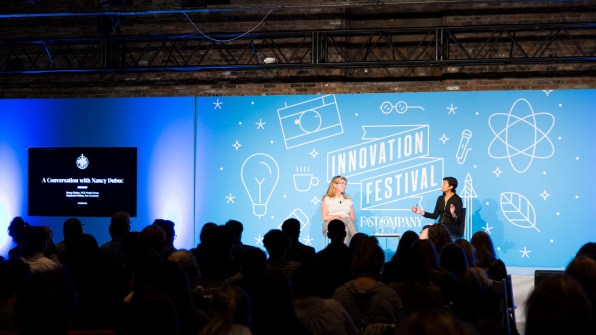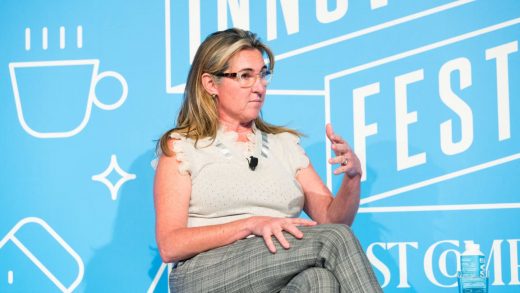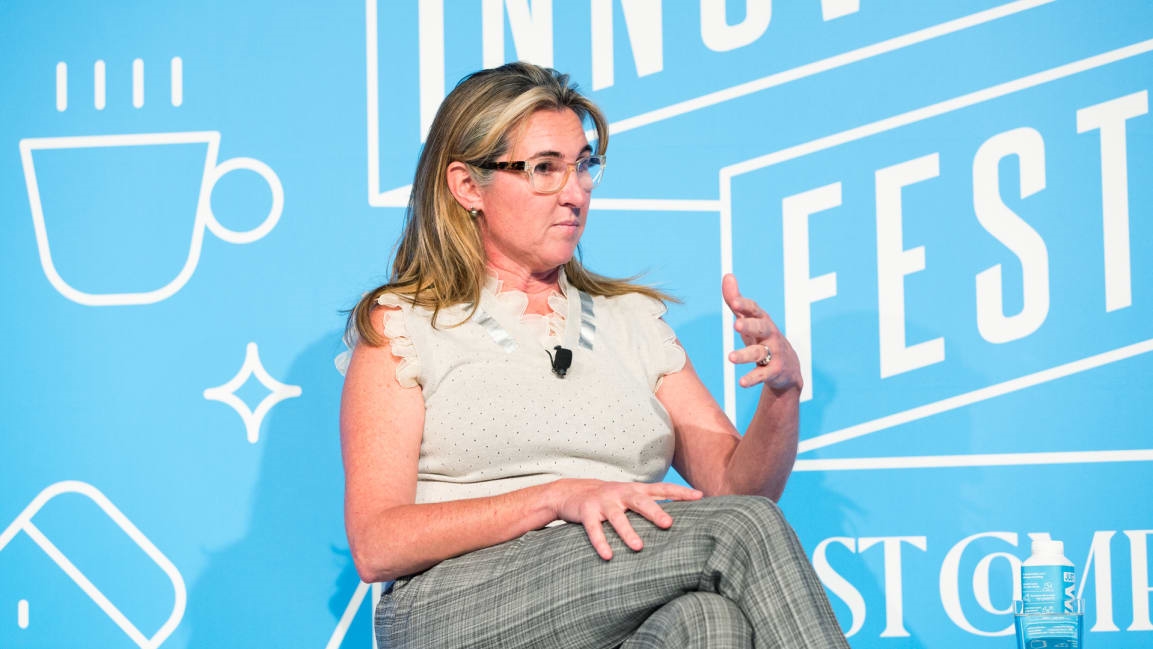Vice Media CEO Nancy Dubuc on why she’s tired of hearing about ‘bro culture’
Everybody knows Vice Media is a male-dominated snake pit of debauchery, schoolyard behavior, and exclusivity, right?
Well, not exactly. One person who’s tired of hearing this “lingering narrative” about the 25-year-old media startup is Nancy Dubuc, the former A&E veteran who became CEO of Vice Media last year.
“I’ve been in this seat now for almost 18 months, and I haven’t done an interview or had a panel where ‘bro culture’ hasn’t come up,” she said at the Fast Company Innovation Festival in New York on Tuesday. “And I know that many of my peers, who are men and who also have had similar cultural situations that they’ve had to endure at their companies as well, but I don’t think they’ve had to endure the same kind of constant drumbeat about their culture as we’ve had to.”
It’s not that Vice’s rule-bending reputation isn’t well earned. The company has seen plenty of internal strife in recent years, much of it memorably laid out in a New York Times exposé in 2017 that alleged a pattern of inappropriate behavior and harassment by male staffers.

[Photo: Celine Grouard for Fast Company]
But Dubuc, who replaced outgoing cofounder Shane Smith, said Vice had already begun to make strides by the time she took the reins, including a workforce that was almost 50% women. “A lot of change was already underway,” she said. “They were eight months into a pay equity overview globally, which was a massive undertaking.”
Rather than fret about the past, Vice today is more focused on the future, Dubuc says, including a plan to reach profitability in 2020, tap new revenue sources that aren’t advertising dependent, and grow the brand’s international footprint. On that front, Vice just completed its acquisition of Refinery29, the women-focused digital media company founded in 2005. The mostly stock deal was reported to be worth about $400 million.
From a business standpoint, bringing the two companies together makes sense. Refinery29 has a sizable audience in the U.K. and parts of Germany, Dubuc noted, while Vice is popular in places like Latin America and the Middle East.
But she said the acquisition is less about scale for its own sake than about bringing together two brands that are complementary, “not duplicative of what we already do,” in other words. She added that the brands are more alike than they may initially appear, with both sharing a pioneering spirit, a desire to tell stories with a “youthful point of view,” and the ability to reach similar audiences from a demographic standpoint.
“‘Authentic’ is really the word that comes to mind,” Dubuc said. “It exists in both cultures, and that will be easy to bring together.”
(29)



